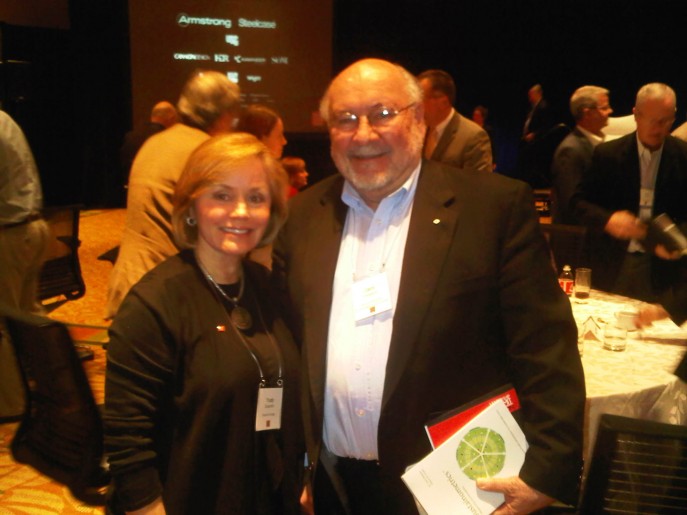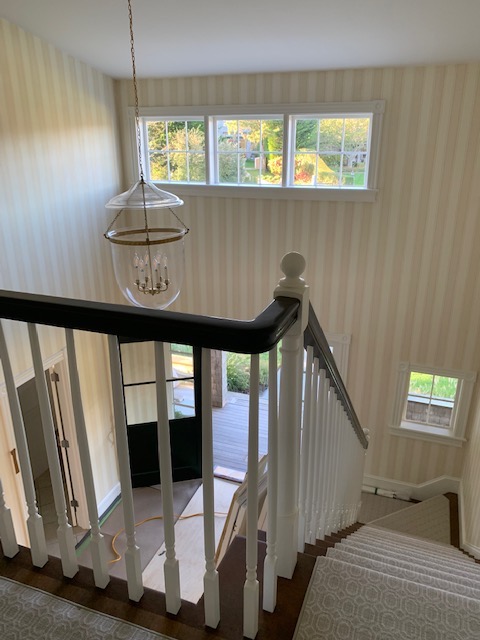 10th Annual Leadership Summit on Sustainable Design Hosted by the Design Futures Council
10th Annual Leadership Summit on Sustainable Design Hosted by the Design Futures Council
I’ve recently had the privilege of attending several important and inspirational conferences dealing with sustainable design and how designers, architects and engineers can work together to protect the fragile health of our planet. The Leadership Summit on Sustainable Design, held in Boston earlier this month, was one of the most stirring and motivating of all.
The Design Futures Council, an interdisciplinary network that explores global trends, challenges and opportunities to advance and shape the future of the industry and the environment, sponsors the Annual Summit. Limited to a delegation of 100 leaders in the field of architecture, design and construction, the event was convened to identify change drivers, analyze emerging data and explore innovation in sustainable design.
The First Leadership Summit and the Nantucket Principles
There are certain achievements in my life in which I take the most pride: one of these is my participation in the very first Leadership Summit on Sustainable Design, held on Nantucket Island nine years ago. At that three day session, the Nantucket Principles were developed, providing a philosophical, strategic and tactical path toward sustainable design. Since that first session in Nantucket, the Summit has been held throughout North America, in St. Louis, Boston, Santa Fe, Austin, Vancouver, Chicago and Atlanta.
We knew then, and believe today, that the planet can become healthier, greener and more abundant. We have pledged ourselves to that goal, to engage, to listen, to learn, to educate, and to act toward a strong sustainable model.
I invite you to join us in our work by engaging in holistic living, embracing sustainable principles, and challenging limiting beliefs wherever you find them.
All the Summit speakers gave incredible and moving presentations, some of my favorites among them were:
- Michael Graves, a DFC Senior Fellow, who recognized students and emerging leaders
- Natalia Allen, a design futurist, who spoke on Weaving Sustainability and Technology
- Ed Mazria, a DFC Senior Fellow, who talked about Leadership Toward 2030, What We Are Learning About Our Biggest Challenges
- Bob Berkebile, a DFC Senior Fellow, who talked about Redefining Design and Practice: Journey to Regenerative Design
- William Kamkwamba, a self-educated Malawian inventor, who gained fame in his country when in 2002, he built a windmill to power electrical appliances in his house in Masitala using blue gum trees, bicycle parts and materials collected in a local scrapyard. His story is told in his inspirational book, The Boy Who Harnessed the Wind: Creating Currents of Electricity and Hope, written with journalist Bryan Mealer. http://www.amazon.com/Boy-Who-Harnessed-Wind-Electricity/dp/0061730327
Important Points to Ponder
- Could climate change be happening much faster than some scientists claim? What would be the result? James Hanson, director of the Goddard Institute at NASA, talks about it in this video. Watch it! http://bigthink.com/jameshansen
Thank you for taking the time to read and share these important topics. As the Design Futures Council declares, we are not waiting for an economic upturn or new regulations. We are not waiting for someone else to lead. We will act. I hope you will too.





 10th Annual Leadership Summit on Sustainable Design Hosted by the Design Futures Council
10th Annual Leadership Summit on Sustainable Design Hosted by the Design Futures Council